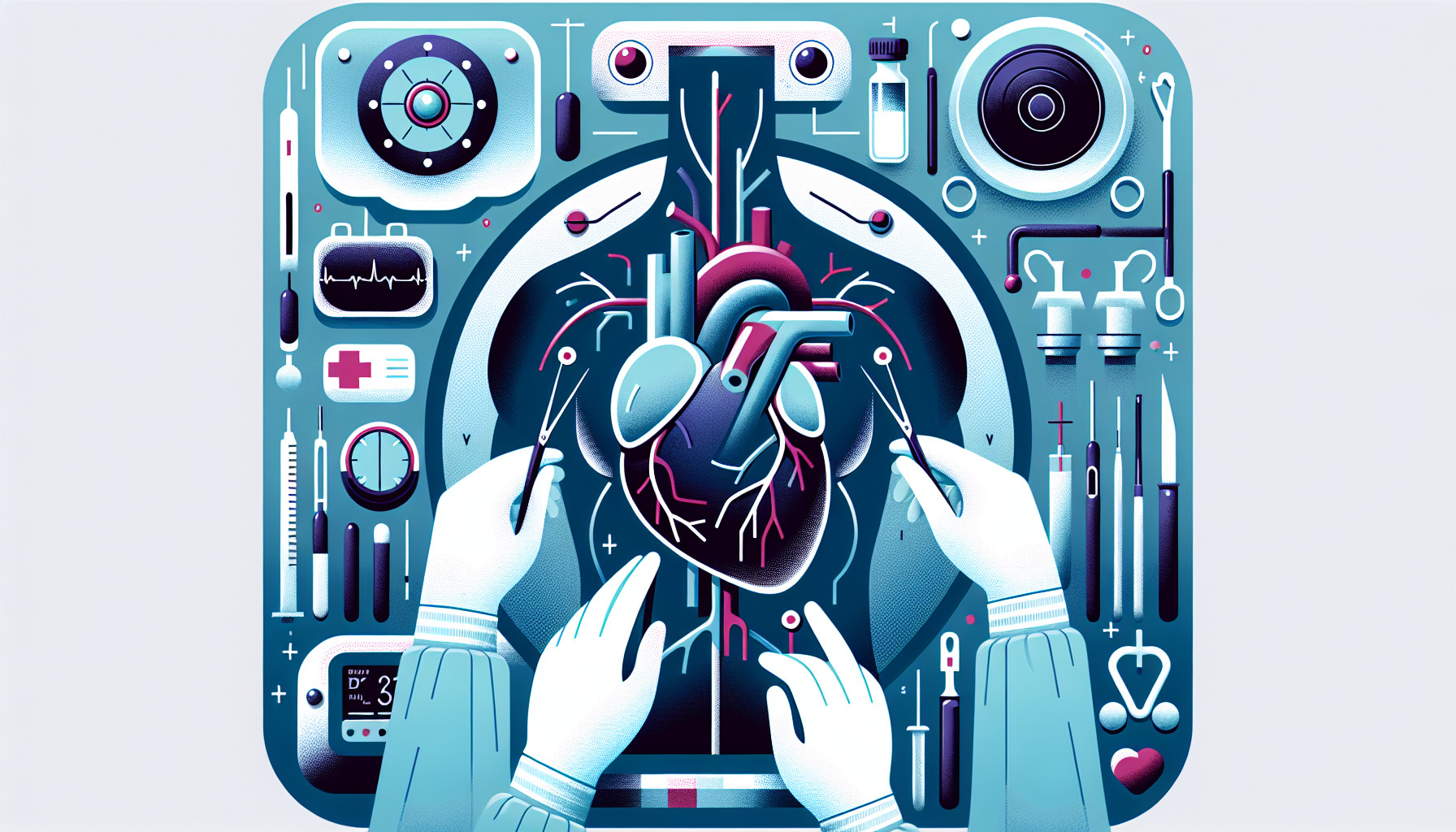Our Summary
The research paper is a review and analysis of studies that compare the outcomes of two methods for coronary artery bypass grafting (CABG), a type of heart surgery. The two methods examined are “total arterial grafting” (TAG) performed using two different processes: “off-pump coronary artery bypass grafting” (OPCAB) and “on-pump coronary artery bypass grafting” (ONCAB).
The review finds that there are no substantial differences in complications during the surgery between the two methods. However, the off-pump method (TAG-OPCAB) is linked to a lower death rate in the short term after surgery, fewer cases of low cardiac output (a condition where the heart can’t pump enough blood to meet the body’s needs), less occurrence of an irregular heartbeat condition called atrial fibrillation, fewer major adverse cardiac and cerebrovascular events (MACCEs), and shorter time on a ventilator and in hospital stay.
However, the study did not find any factors before or during the surgery that impacted the short-term death rate. The study concludes that the off-pump method (TAG-OPCAB) of heart surgery could be a safe and effective approach for some patients. But, there isn’t enough data to draw conclusions about the long-term outcomes of this method.
FAQs
- What is the difference between on-pump and off-pump coronary artery bypass grafting?
- What are the short-term outcomes of total arterial grafting in off-pump coronary artery bypass grafting compared to on-pump coronary artery bypass grafting?
- What is the effect of pre- or intraoperative variables on short-term mortality in coronary artery bypass grafting?
Doctor’s Tip
A helpful tip a doctor might tell a patient about coronary artery bypass surgery is to carefully follow post-operative care instructions, including taking prescribed medications, attending follow-up appointments, and participating in cardiac rehabilitation programs to optimize recovery and long-term outcomes. It is also important to maintain a healthy lifestyle, including regular exercise, a balanced diet, and avoiding smoking, to reduce the risk of future heart problems.
Suitable For
Patients who are typically recommended for coronary artery bypass grafting (CABG) include those with severe coronary artery disease, especially those with significant blockages in multiple coronary arteries or those at high risk for complications such as heart attack or heart failure. Additionally, patients with unstable angina, left main coronary artery disease, or those who have not responded well to other treatments such as medications or angioplasty may also be candidates for CABG. It is important for patients to be evaluated by a cardiac surgeon and cardiologist to determine if CABG is the best treatment option for their individual case.
Timeline
Before coronary artery bypass surgery:
- Patient undergoes diagnostic tests such as angiography to determine the extent of blockages in the coronary arteries.
- Patient may undergo lifestyle changes, medication management, and possibly other treatments to manage symptoms and reduce the risk of complications.
- Patient may be scheduled for surgery and receive preoperative instructions from their healthcare team.
After coronary artery bypass surgery:
- Patient is monitored closely in the intensive care unit (ICU) immediately after surgery for any complications.
- Patient may experience pain, swelling, and discomfort at the incision site.
- Patient undergoes rehabilitation and physical therapy to regain strength and mobility.
- Patient is closely monitored for complications such as infection, bleeding, and changes in heart function.
- Patient may be prescribed medications to manage pain, prevent blood clots, and control other symptoms.
- Patient follows up with their healthcare team for regular check-ups and monitoring of heart health.
What to Ask Your Doctor
- What are the potential risks and complications associated with coronary artery bypass surgery?
- How long is the recovery period after coronary artery bypass surgery?
- What lifestyle changes will I need to make after the surgery to improve my heart health?
- Will I need to take medication after the surgery, and if so, for how long?
- Are there any restrictions on physical activity or diet that I should follow after the surgery?
- How often will I need to follow up with you after the surgery, and what tests will be done during these follow-up visits?
- How long do the grafts typically last, and what signs should I watch for that may indicate a problem with the grafts?
- What can I do to reduce my risk of needing additional procedures in the future?
- Are there any alternatives to coronary artery bypass surgery that I should consider?
- How experienced are you and your team in performing coronary artery bypass surgery, and what is your success rate with this procedure?
Reference
Authors: Comanici M, Bithi N, Raja SG. Journal: Am J Cardiol. 2025 Aug 15;249:43-50. doi: 10.1016/j.amjcard.2025.04.007. Epub 2025 Apr 21. PMID: 40268129
